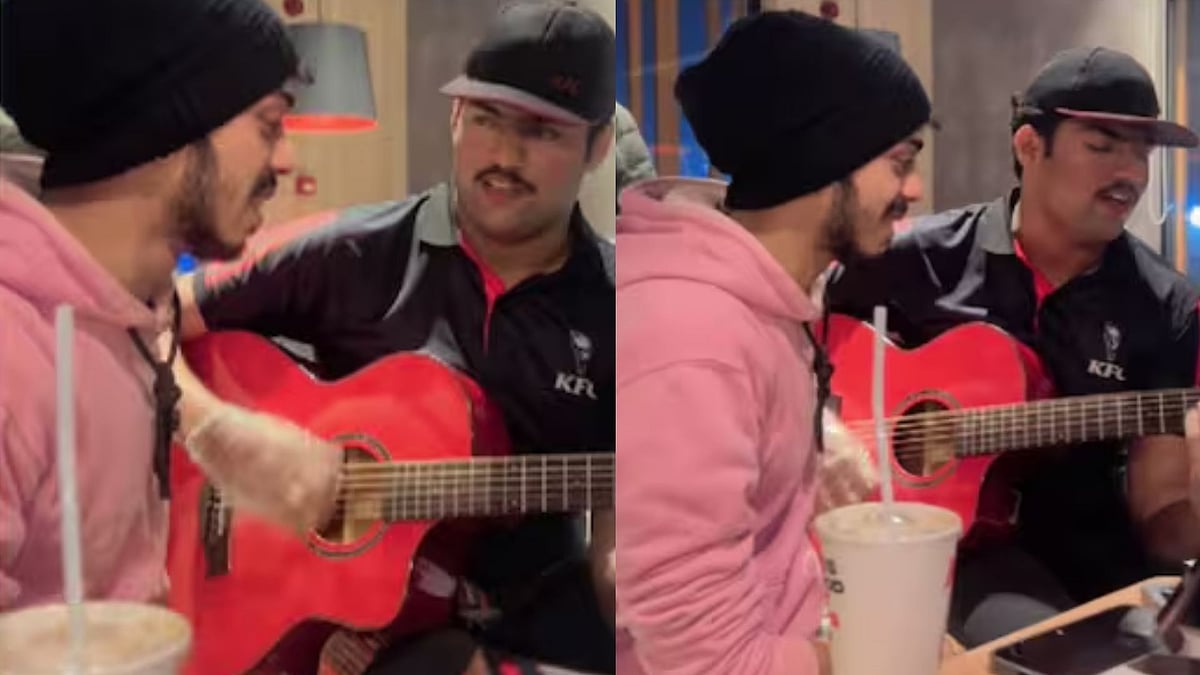In her first Address to the Nation on Republic Day, President Droupadi Murmu would have warmed many hearts across India, especially those of a growing section disturbed by the hollowing out of the Constitution as the Government tightens its grip on independent or autonomous institutions. President Murmu, seen by some as a token appointee for her tribal background, made it clear many times during the address that India’s Constitution has ensured the nation’s success as a democratic republic despite being home to varied creeds and languages. “This essence is at the heart of the Constitution, which has withstood the test of time,” she said, adding that the Constitution that governs “the life of the Republic was the outcome of the freedom struggle.... The national movement, led by Mahatma Gandhi, was as much about winning independence as about rediscovering our own ideals.”
Coming from the country’s highest office, the words hold great significance for several reasons. Governments, both at the Centre and in many states ruled by the BJP, have tested the limits of how far they can crush the constitutional rights and liberties guaranteed to citizens, rights that the governments are obliged to uphold. The creeping control over institutions that are meant to be independent and autonomous has several private citizens and public intellectuals deriding this as a phase of “undeclared Emergency”. Moreover, so-called fringe outfits of the Rashtriya Swayamsevak Sangh, which have enormous support among Hindutva groups, have frequently called for overthrowing the Constitution and even replacing it with the Gita.
Seen against this backdrop, President Murmu’s generous praise of the Constitution and its makers, including the oft-forgotten BN Rau, and liberal references to its values and principles as reasons for India’s success are significant. If the President can walk the walk on her views, all may not be lost despite the brute majority the ruling party enjoys at the Centre which it has used to steamroll over people and institutions. However, it bears attention that the RSS and its sympathisers who have never seen merit in the Constitution may be distinctly uncomfortable with her assertions and her independence of thought. Unless this is part of the classic Sangh strategy of speaking in many tongues on the same issue to pander to different sections. President Murmu’s actions and decisions will shed light on this as the months roll on.
Focus on the drivers first
Approximately 1,50,000 people die on India’s roads every year in four lakh recorded accidents, according to the Ministry of Road Transport; this means an average of 1,130 accidents and 422 deaths every day, or 47 accidents and 18 deaths every single hour. India accounts for the highest number of road fatalities every year, according to the World Health Organisation. The year that went by saw former Tata Sons Chairperson Cyrus Mistry and his friend die on a national highway, among lakhs of others who perished. This brought the focus back on road accidents and the causes thereof.
In late December, Maruti Suzuki Chairperson RC Bhargava drew flak when he said crash tests on vehicles, conducted by the Global New Car Assessment Programme (GNCAP), hold little relevance in the Indian context and called for improved training of and road behaviour by drivers instead. Though the GNCAP rated some cars from Mr Bhargava’s company below par on crash test safety standards, putting the spotlight on manufacturers, his words about driver training and behaviour are absolutely on point.
Road accidents have at least four causative factors – vehicle safety standards, which include the design and spare parts, road infrastructure, which is not standardised across India and poses a big risk to motorists in cities as well as on highways, driver training and road behaviour, and, last but not least, enforcement of traffic rules and discipline. Most accidents are a combination of the first three factors rather than any one in isolation and lackadaisical policing. Of these, the last can be easily addressed and vehicle manufacturers can be forced by new regulations to make safer vehicles; the more challenging aspects are road infrastructure, which is the government’s responsibility, and driver behaviour.




